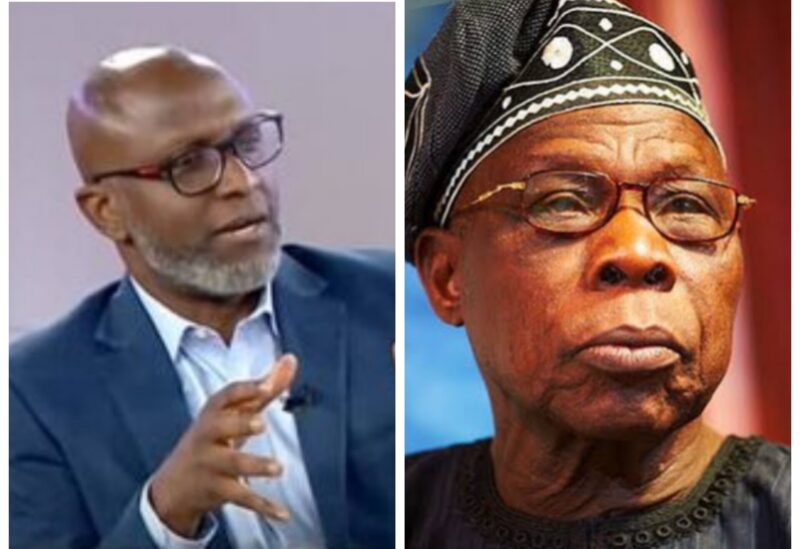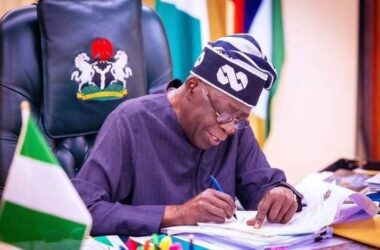Laolu Akande, former presidential aide, has shed light on the complexities and consequences of Nigeria’s bilateral investment treaty with China, which has led to significant legal challenges for the country, including the seizure of three presidential jets. Speaking on Channels TV’s Sunrise Daily on Thursday, Akande explained that a critical clause in the treaty has enabled private entities to sue Nigeria, resulting in a national embarrassment that could have been avoided.
Akande began by emphasizing that the core issue lies within the bilateral investment treaty signed between Nigeria and China. According to him, “like they will say ‘the koko of the matter’ is the bilateral investment treaty. And what that has done based on what the experts have explained to us clearly is that there is a clause in that treaty that allows the citizens of either country to bring up an action. Normally, what you will have is that look this is a treaty between Nigeria and China. So if there is going to be any action, court cases, adjudication or litigation it will be between China and Nigeria. But worse thing to happen is that somebody permitted a clause you know one of the articles of that treaty to state that citizens or businesses of either country can bring a charge, that is the unusual thing that happened in that treaty that has now given rise to the situation that we are dealing with today.”
This unusual provision has led to the current situation where a private Chinese company has taken legal action against Nigeria, bypassing the traditional diplomatic channels that would ordinarily handle such disputes. Akande expressed concern over how this clause was allowed to be included in the treaty, stating, “We are still trying to find out who inserted this clause. It appears that this went through the Ministry of Foreign Affairs, the Ministry of Industry and Trade, and possibly the Office of the Attorney General of the Federation in 2001.”
Recall that when the contentious Treaty was signed in 2001 with Chief Olusegun Obasanjo as President, there was the scramble in the nation for foreign direct investment (FDI). According to Akande “This is the role of institutional memory. And that is what we have to deal with when we talk about Civil Service reforms. What is the level of institutional memory that is being retained and maintained?
“The more important thing to deal with is how come Nigeria signed a bilateral investment treaty that allows non-state actors, non-government, to be able to challenge a sovereign government? That is the unusal thing that happened in 2001 and it will be good to find out why they had to accept that,” the veteran journalist said.
He further explained that the situation has escalated beyond the recent seizure of a Nigerian jet in France, revealing that there are also orders to seize Nigerian assets in Spain. “People are focusing on the jet in France, but this is much larger. There are other assets in Spain at risk of seizure. For those questioning the court’s jurisdiction, legal experts have clarified that, under international law, the clause in the treaty allows for this kind of legal action,” Akande stated.
Addressing the handling of the litigation, Akande expressed frustration over Nigeria’s apparent lack of diligence in defending its interests. “In at least two instances, Nigerian legal representatives were not diligent. For example, there was a time when Nigeria had 74 days to file a response, but the filing was delayed until after the deadline had expired. This type of sloppy work is embarrassing and has contributed to our current predicament,” he lamented.
Akande also touched on the events in Ogun State between 2013 and 2016, involving a dispute between the Ogun State government and the Chinese company Zhongfu. He noted that the state abruptly terminated Zhongfu’s appointment as the manager of a free trade zone, leading to further complications. “The Ogun State government, under Governor Ibikunle Amosun, took drastic actions, including revoking immigration papers and expelling the company’s executives. However, the former governor later admitted that he had not paid diligent attention to the agreement, which has now escalated into a broader issue affecting the entire nation,” Akande recounted.
Akande concluded by calling for a thorough review of the treaty and the processes that led to its ratification. “Before a treaty like this is signed, it typically goes through several stages, including drafting by the Ministry of Foreign Affairs, review by the Ministry of Justice, and approval by the Federal Executive Council. Despite these steps, no one flagged the problematic clause that gives non-state actors the right to sue. If that clause had not been there, any legal action would have had to be taken by the Chinese government, which would likely have preferred to resolve the matter diplomatically,” he said.










